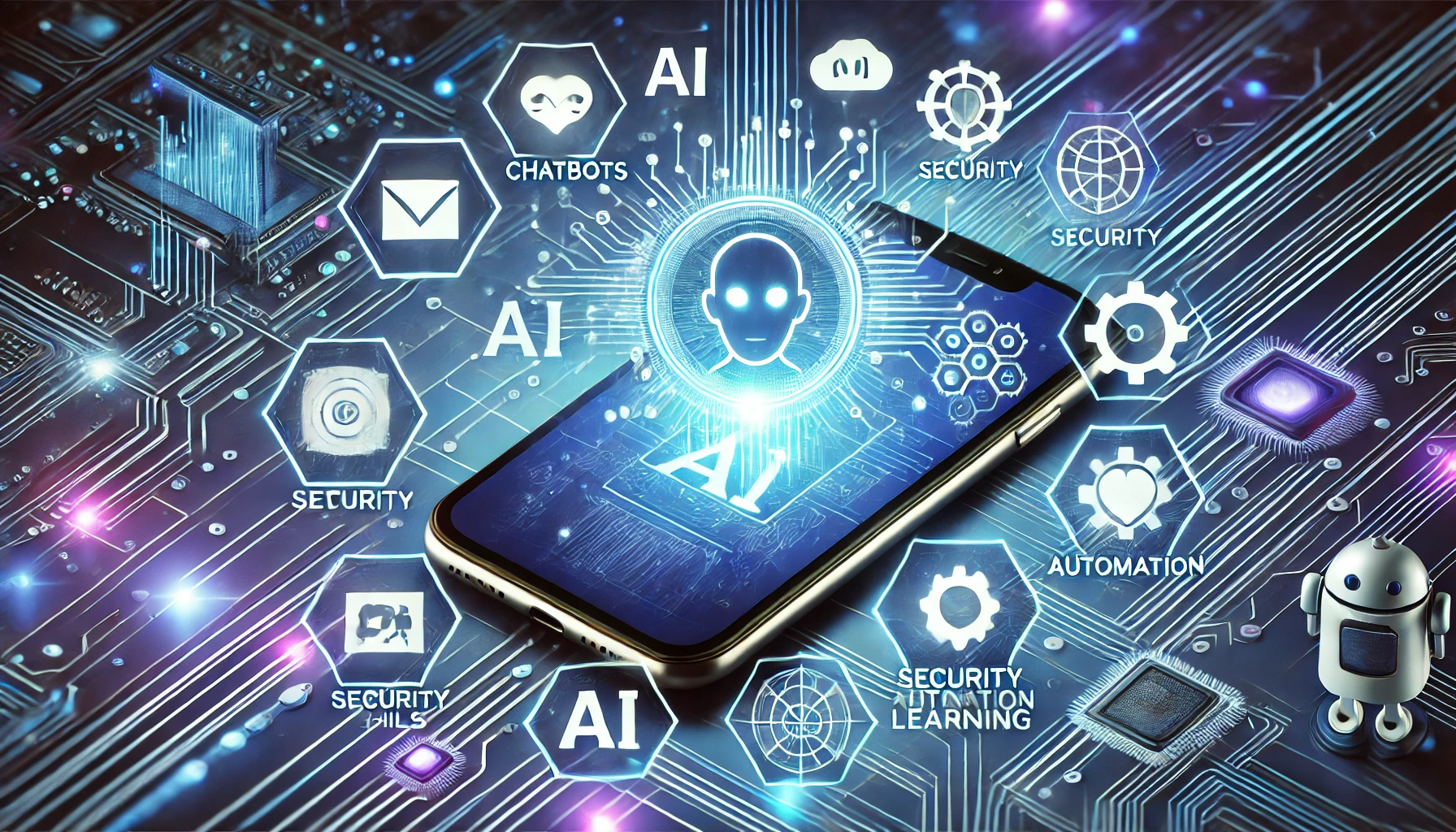
Artificial Intelligence (AI) and Machine Learning (ML) are changing the way mobile applications work. These technologies are making apps smarter, more efficient, and user-friendly. Let’s explore how AI and ML are transforming mobile applications and shaping the future of app development.
1. Personalized User Experience
AI helps apps understand user preferences and behavior. With machine learning algorithms, apps can recommend products, videos, or music based on past interactions. This improves user satisfaction and keeps them engaged for longer periods.
2. Smart Assistants and Chatbots
Voice assistants like Siri and Google Assistant use AI to understand and respond to user queries. Chatbots in mobile apps provide instant customer support, reducing wait times and improving service efficiency.
3. Enhanced Security and Fraud Detection
AI-powered mobile apps offer improved security features such as facial recognition and fingerprint scanning. Machine learning helps detect fraud by analyzing patterns and identifying unusual activities, protecting users from cyber threats.
4. Improved Search Capabilities
AI-powered search engines within apps help users find what they need quickly. Image and voice search features allow users to search without typing, making the experience more convenient and accessible.
5. Automated Tasks and Smart Automation
AI enables mobile apps to automate routine tasks. From scheduling appointments to sorting emails, AI-powered automation saves time and improves productivity for users.
6. Better Camera and Image Recognition
AI-driven cameras enhance photo quality by adjusting brightness, focus, and color. Apps like Google Lens use image recognition to identify objects, scan QR codes, and provide real-time translations.
7. Predictive Text and Voice Recognition
AI helps in predictive text, making typing faster and more accurate. Voice recognition technology allows hands-free operation, making apps more user-friendly and accessible to people with disabilities.
8. AI in Healthcare Apps
Healthcare apps use AI to provide personalized health recommendations, monitor vital signs, and even detect diseases early. This helps users track their health and seek medical assistance when needed.
9. AI in E-Commerce Apps
AI helps e-commerce apps suggest products based on user preferences. Virtual try-ons and chatbots improve customer engagement and boost sales by providing a more interactive shopping experience.
10. AI in Gaming Apps
AI-powered gaming apps offer a dynamic experience by adapting to player behavior. AI-driven non-player characters (NPCs) provide more realistic interactions and challenge players at different skill levels.
Why AI and ML Matter in Mobile Apps
AI and ML enhance user experience, improve security, and make apps smarter. Businesses that adopt these technologies can offer better services and stay ahead of the competition. As AI continues to evolve, mobile apps will become even more intuitive and efficient.
Conclusion
Artificial Intelligence and Machine Learning are revolutionizing mobile applications by making them smarter and more efficient. As technology advances, AI will continue to enhance user experiences, automate tasks, and improve security. Businesses and developers must embrace AI and ML to stay competitive in the evolving digital world.



